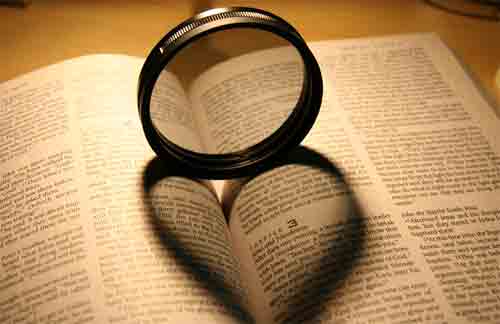 If you want to read the scriptures prayerfully with the church I recommend the readings used in the Eucharist – Sundays and weekdays.
If you want to read the scriptures prayerfully with the church I recommend the readings used in the Eucharist – Sundays and weekdays.
The parts of the Bible read this day, Thursday 3 October, most around the world will be Nehemiah 8:1-12 and Luke 10:1-12, with Psalm 19:7-11.
Nehemiah 8:1-12 particularly touched me this morning as a description of the very thing we are engaged in. It presents an ideal that is not outdated:
“All the people gathered together into the square before the Water Gate. They told the scribe Ezra to bring the book of the law of Moses, which the Lord had given to Israel. Accordingly, the priest Ezra brought the law before the assembly, both men and women and all who could hear with understanding. This was on the first day of the seventh month. He read from it facing the square before the Water Gate from early morning until midday, in the presence of the men and the women and those who could understand; and the ears of all the people were attentive to the book of the law. The scribe Ezra stood on a wooden platform that had been made for the purpose; and beside him stood Mattithiah, Shema, Anaiah, Uriah, Hilkiah, and Maaseiah on his right hand; and Pedaiah, Mishael, Malchijah, Hashum, Hash-baddanah, Zechariah, and Meshullam on his left hand. And Ezra opened the book in the sight of all the people, for he was standing above all the people; and when he opened it, all the people stood up. Then Ezra blessed the Lord, the great God, and all the people answered, ‘Amen, Amen’, lifting up their hands. Then they bowed their heads and worshipped the Lord with their faces to the ground. Also Jeshua, Bani, Sherebiah, Jamin, Akkub, Shabbethai, Hodiah, Maaseiah, Kelita, Azariah, Jozabad, Hanan, Pelaiah, the Levites, helped the people to understand the law, while the people remained in their places. So they read from the book, from the law of God, with interpretation. They gave the sense, so that the people understood the reading.
And Nehemiah, who was the governor, and Ezra the priest and scribe, and the Levites who taught the people said to all the people, ‘This day is holy to the Lord your God; do not mourn or weep.’ For all the people wept when they heard the words of the law. Then he said to them, ‘Go your way, eat the fat and drink sweet wine and send portions of them to those for whom nothing is prepared, for this day is holy to our Lord; and do not be grieved, for the joy of the Lord is your strength.’ So the Levites stilled all the people, saying, ‘Be quiet, for this day is holy; do not be grieved.’ And all the people went their way to eat and drink and to send portions and to make great rejoicing, because they had understood the words that were declared to them.”
May we daily pick up the scriptures together and through them hear God’s Word and what the Spirit is saying to us, the church.



Yes these Reading remind us of the potency of the Word and that that Word brings the reign of God near. I would hope however in our responsiveness to that Word that Psalm 19:7-11 will not be read – but sung (or minimally chanted). The genres of scripture need to be brought forth and the Psalm is to always be sung as the Gospel Acclamation is always to be sung or omitted. Maybe those preparing for Ministry – ordained or lay – should have to have significant studies in Liturgy and Music. Abandoning Liturgy for read evangelical prayer forms seems to devalue the scripture.
Amen, Phillip. 🙂 Blessings.